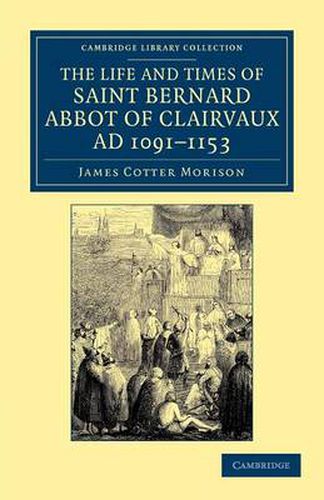Readings Newsletter
Become a Readings Member to make your shopping experience even easier.
Sign in or sign up for free!
You’re not far away from qualifying for FREE standard shipping within Australia
You’ve qualified for FREE standard shipping within Australia
The cart is loading…






This work, first published in 1863, relates the biography of a complex, visionary reformer from his birth in 1091 to his death in 1153, capturing in the process the major currents of twelfth-century politics, culture and faith. From the foundation of the Cistercian Abbey of Clairvaux to its rise as a centre of monastic austerity and devotion, the book traces Saint Bernard’s participation in the seismic events of his day, including the creation of the Knights Templar, the rise of scholasticism and the preaching of the Second Crusade. Told in a lucid, anecdotal style by the Victorian essayist, biographer and political reformer James Cotter Morison (1832-88), whose friends included Matthew Arnold and Thomas Carlyle, this is an important work of Victorian medievalist criticism, capturing the spirit of its own age even as it evokes the spirit of another.
$9.00 standard shipping within Australia
FREE standard shipping within Australia for orders over $100.00
Express & International shipping calculated at checkout
This work, first published in 1863, relates the biography of a complex, visionary reformer from his birth in 1091 to his death in 1153, capturing in the process the major currents of twelfth-century politics, culture and faith. From the foundation of the Cistercian Abbey of Clairvaux to its rise as a centre of monastic austerity and devotion, the book traces Saint Bernard’s participation in the seismic events of his day, including the creation of the Knights Templar, the rise of scholasticism and the preaching of the Second Crusade. Told in a lucid, anecdotal style by the Victorian essayist, biographer and political reformer James Cotter Morison (1832-88), whose friends included Matthew Arnold and Thomas Carlyle, this is an important work of Victorian medievalist criticism, capturing the spirit of its own age even as it evokes the spirit of another.